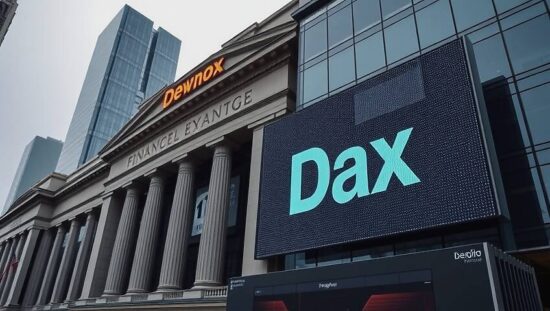The German Stock Exchange is planning a second Dax, which will run in addition to the existing stock market index. “For investors who want to reflect the largest German companies, we are developing a version of the Dax 40 without a cap, which will be published in the first quarter of 2025” the index subsidiary of the German Stock Exchange, ISS Stoxx, told the business magazine “Capital” in response to a query.
The stock exchange is reacting to the overrepresentation of the SAP share, which, with a market capitalization of around 310 billion euros, has blown the so-called cap of the index, a self-imposed regulatory framework that provides that a single share can only account for a maximum of 15 percent of the index. This is based on the market capitalization of the free float. If the share of a title exceeds 15 percent, its weight in the Dax will be frozen at this value.
SAP has now permanently exceeded this cap, previously the case with the gas company Linde, which ultimately withdrew from the Frankfurt Stock Exchange in 2023.
The weighting in an index is relevant for professional investors: actively managed funds are already only allowed to invest a maximum of 10 percent of their assets in a single share. But benchmark investors, who track the index, for example in the form of a Dax ETF, must strictly follow the index. According to this system, the highly valued SAP shares must be reduced in many portfolios.
The new Dax without a cap, on the other hand, offers all other investors the opportunity to benefit from the strong price growth of a heavyweight like SAP. For this, ETF providers would then have to take corresponding products into their product range.
The German Stock Exchange has calculated the development of a Dax without a cap and found “no significant differences in the risk and return properties of the two versions” the institute said. The same applies to the return in the current year, the volatility and the so-called Sharpe Ratio, a measure of how much return a investment generates in relation to the risk. The volatility of the new Dax could be higher in the future due to the stronger dependence on individual shares, the stock exchange warns.





